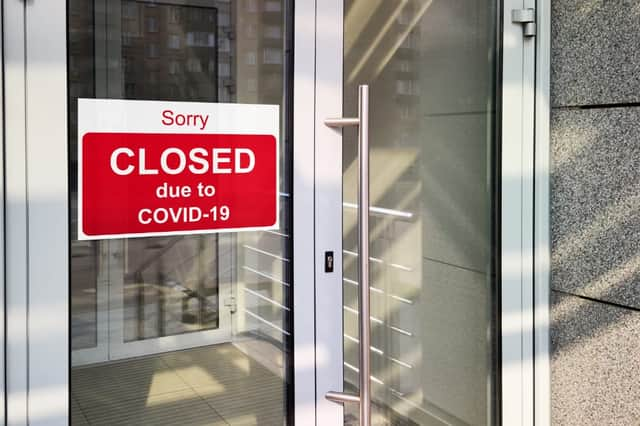This is the full list of key workers who should continue to work over lockdown


Prime Minister Boris Johnson announced that England will enter a new lockdown to curb rising coronavirus cases.
The new restrictions come into place on Tuesday 5 January, following fears that the four-tier local system was not enough to contain the new, more transmissible strain of the virus.
Advertisement
Hide AdAdvertisement
Hide AdPeople will be legally required to “stay at home”, and schools will close to most pupils while the restrictions are in place.
However, the children of critical workers can still go to school, meaning their parents can continue to go to work during the pandemic.
So, who does the government deem to be key workers during England’s third lockdown? Here is the full list.
Who is a key worker?
The government has said that people who work in the following roles are classed as key or critical workers.
Advertisement
Hide AdAdvertisement
Hide AdSectors range from health and social care, education, key public services and food to public safety.
Health and social care
People who work in health and social care are deemed critical workers.
This sector includes doctors, nurses, midwives, paramedics, social workers, care workers, and other frontline health and social care staff including volunteers.
Education and childcare
Teachers, school support staff, childcare staff, social workers and other specialist educational professionals are all classed as key workers.
Advertisement
Hide AdAdvertisement
Hide AdThe same applies to childcare workers, support and teaching staff, social workers and specialist education professionals.
Key public services
Those who work in key public services are critical workers, including those essential to running the justice system, religious staff, charities and workers delivering vital services.
It also includes people responsible for the management of the deceased, and journalists and broadcasters providing public service broadcasting.
Local and national government
People who are working to deliver the coronavirus response in government services are deemed critical workers.
Advertisement
Hide AdAdvertisement
Hide AdThis also includes those working in essential public services such as the payment of benefits.
Food and other necessary goods
Those who work in food production, processing, distribution and delivery, and those essential to the production of other key goods, are critical workers.
Public safety and national security
Police, support staff, Ministry of Defence civilians, contractor and armed forces personnel, and fire and rescue service staff are all key workers during the pandemic.
It is the same for National Crime Agency staff, those maintaining border security, prison and probation staff, and other national security roles, including contractors and Armed Forces personnel.
Transport and border
Advertisement
Hide AdAdvertisement
Hide AdPeople who keep air, water, road, rail passenger and freight transport services operating during the coronavirus response are all critical workers.
That includes those working on transport systems through which supply chains pass.
Utilities, communication and financial services
Staff needed for essential financial services provision, including those working in banks, building societies and financial market infrastructure, are classed as key workers.
It is the same for those who work in the oil, gas, electricity and water sectors, information technology and data infrastructure sector and primary industry supplies, waste disposal sectors, postal services and payment provider services.
Advertisement
Hide AdAdvertisement
Hide AdPeople working in civil nuclear, chemicals and telecommunications are also included as key workers, such as network operations, field engineering, call centre staff, IT and data infrastructure, 999 and 111 critical services.